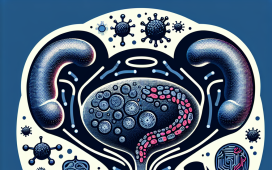The immune system is the body’s defense system against disease. It is made up of a complex network of cells, tissues, and organs that work together to protect the body from infection and disease.
In recent years, there has been a growing interest in the field of immunology. This is due in part to the development of new technologies that have allowed scientists to better understand the immune system.
There are a number of frontiers in immunology that are being actively explored today. These include:
- Understanding the microbiome: The microbiome is the community of bacteria and other microorganisms that live in the body. It is now believed that the microbiome plays an important role in the immune system.
- Developing new vaccines: Vaccines are one of the most effective ways to prevent disease. There is a growing need for new vaccines to protect against emerging diseases.
- Harnessing the power of immunotherapy: Immunotherapy is a type of treatment that uses the body’s own immune system to fight cancer and other diseases. Immunotherapy is a promising new treatment option, but there is still much work to be done.
- Understanding autoimmune diseases: Autoimmune diseases are diseases that occur when the body’s immune system attacks its own tissues. There is a growing need to understand autoimmune diseases so that better treatments can be developed.
These are just a few of the frontiers in immunology that are being actively explored today. As the field of immunology continues to evolve, we can expect to see even more advances in the prevention, diagnosis, and treatment of disease.
Here are some additional examples of cutting-edge research in immunology:
- The development of new drugs that can target specific immune cells or molecules. This could lead to more effective treatments for a variety of diseases, including cancer and autoimmune diseases.
- The use of gene therapy to modify the immune system. This could potentially cure diseases that are currently incurable, such as HIV/AIDS.
- The development of new ways to harness the power of the microbiome to improve health. This could lead to new ways to prevent and treat diseases, such as allergies and inflammatory bowel disease.
The field of immunology is rapidly evolving, and there is a great deal of excitement about the potential for new treatments and cures. As we learn more about the immune system, we will be able to develop even more effective ways to protect ourselves from disease.








